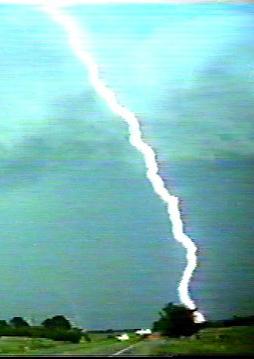Lightning Talks are eight five-minute talks in a forty-five-minute time slot (or eleven in a sixty-minute slot, or sixteen in a ninety-minute slot.)
Also see below for community feedback talk sessions.

Maybe you've never given a talk before, and you'd like to start small. For a Lightning Talk, you don't need to make slides, and if you do decide to make slides, you only need to make three.
Maybe you're nervous and you're afraid you'll mess up. It's a lot easier to plan and deliver a five minute talk than it is to deliver a long talk. And if you do mess up, at least the painful part will be over quickly.
Maybe you don't have much to say. Maybe you just want to ask a question, or invite people to help you with your project, or boast about something you did, or tell a short cautionary story. These things are all interesting and worth talking about, but there might not be enough to say about them to fill up thirty minutes.
Maybe you have a lot of things to say, and you're already going to give a long talk on one of them, and you don't want to hog the spotlight. There's nothing wrong with giving several Lightning Talks. Hey, they're only five minutes.
On the other side, people might want to come to a lightning talk when they wouldn't come to a long talk on the same subject. The risk for the attendees is smaller: If the talk turns out to be dull, or if the person giving the talk turns out to be a really bad speaker, well, at least it's over in five minutes. With lightning talks, you're never stuck in some boring lecture for forty-five minutes.
A lot of people are not getting the point of these. They hear that they only get five minutes to speak, and they get all tense. ``How can I squeeze a whole talk into five minutes?''
No! The point is that because the talk is only five minutes long, you don't have to take it so seriously. Just try to say something brief and interesting, and then get out in a hurry. If people want to follow up or ask questions, they will catch you in the hallway afterwards.
If I got to schedule eleven talks that were nothing but five minutes of ranting and raving, I would be really happy.
Here are some suggestions:
Of course, you can give a talk on anything you want, whether or not it is on this list.
Someone told me he wanted to do a lightning talk, but couldn't think of a topic, and asked if I could suggest some topics. So if you want some suggestions, here is a list of Perl-related topics.
We are currently accepting proposals for lightning talks for OSCON 2004 in Portland, Oregon.
If you're interested in giving a talk, see Instructions for Submitters.
This year at the Perl Conference, we will also have some informal "Community Feedback Talks" sessions. One of the goals of lightning talks was to provide a low-pressure forum for first-time speakers. All though the lightning talks have been very successful on many ways, they haven't filled that need. So we're going to try again.
A Community Feedback Talk (CFT) is just that: a request to the community for comments and discussion. Typically, the presenter will briefly discuss some software project they have been working on, and perhaps show a demo. CFT sessions will take place in a smaller room than the lightning talks. Presenters are requested to keep their presentations short so that everyone gets a chance to speak; they should certainly be no more than about seven minutes each. But nobody will ring a big gong if your talk runs too long.
There's no formal submission process for the CFT sessions; it's OK to just show up on the day of the session planning to stand up and talk for a few minutes. You don't have to get up on stage. You don't have to have slides. You don't actually have to request feedback; it's OK to get up and talk about some bug you fixed, or some project you're worked on, or something you'd like help with.
All topics are allowed; see the suggestions above for examples.
We hope that first-time speakers will take advantage of the CFT sessions to tell the community about the cool projects they're working on.
Mail me at mjd-osc-lt-2004-questions@plover.com.
Return to: Universe of Discourse main page | What's new page | Perl Paraphernalia